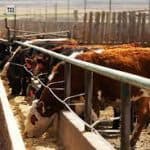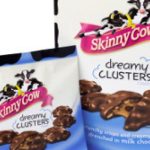
If you’re trying to grow beef cattle, you need to choose the right feed rations for your cows. A wrong choice can result in your cattle suffering from a range of health issues, from poor growth to even death. The best way to find the right rations for your cattle is to learn more about what they eat. This article will cover some of the main ingredients used in rations for beef cattle.
Contents
Distillers grains with solubles
Distillers grains with solubles are an important source of protein for livestock. They are a byproduct of the fermentation of corn grain. For many years, they have been used as a supplement to livestock diets. However, there are a number of challenges that must be taken into consideration when deciding to use them.
One challenge is the nutrient composition of the grains. For example, some sources contain up to 12% fat. This can limit the amount of distillers grains that can be fed to dairy cows.
For this reason, it is important to assess the rations for both breed and age before using them. In addition, the feeds should be evaluated on the stage of gestation. For beef cattle, rations should be formulated for a weight gain of 1.75 lb/day.
Alfalfa
Alfalfa is a good choice for beef cow feed rations. It’s high in protein, calcium and potassium. Its high concentration of nonfiber carbohydrates is beneficial for dairy cows. It’s also an excellent source of rumen fill.
However, if you want to include alfalfa in your beef cow rations, you should know how to formulate it correctly. A nutrient analysis is the most important step. The analysis will determine the quality of the alfalfa. You should then use the analyzed CP values and DIP values to formulate your ration.
The most important factor to consider when selecting alfalfa for your rations is its protein content. Alfalfa contains 19% to 20% crude protein. This is more than most grasses.
The quality of the alfalfa will be reflected in its fiber content. Its proportion of acid detergent fiber (ADL) in the NDF is an important parameter for its fiber quality.
Soy hulls
Soy hulls are a by-product of soybean production and processing. They have a low starch content and are considered a good source of fibre for cattle. They can be purchased as loose or pelleted feed.
Several studies have been done on the use of soy hulls in beef cow diets. Researchers have found that soy hulls can be fed as a substitute for corn grain in high forage rations. However, the protein level and energy value of soy hulls are lower than those of corn.
Soy hulls may also have a negative effect on animal health. It has been suggested that soy hulls can reduce milk fat production. It is also believed that rumen fermentation may be negatively affected by soy hulls. This can lead to excessive rumen distention.
Corn gluten
Corn gluten is a by-product of the wet milling process of corn. It is a source of protein and energy for cattle. It is considered to be an economical source of nutrients. It is also used in swine feeds.
For the past 10 years, wet corn millers have increased in number. They are responsible for processing about 10% of the nation’s corn crop. Their products include corn starch, syrup, and sweeteners. These products are produced in both dry and wet mills.
The production of corn gluten is relatively constant. But, it is important to know what to look for when buying this product. Generally, corn gluten has about the same nutritional value on a dry matter basis as barley. However, the amount of sulfur in corn gluten can vary due to the manufacturing process.
Mineral mix
Minerals are essential for the health and performance of animals. Deficiencies in these nutrients can result in diminished productivity and reproductive failure. Identifying the correct mineral mix in beef cow feed can help to avoid wasted feed dollars and improve the health of the animals.
The mineral requirements of cattle vary according to their age, weight, and physiological state. Some of the major elements are calcium, phosphorus, and potassium. In addition to these, trace minerals such as iron and manganese are also required.
Mineral deficiencies can affect an animal’s immune system, reproduction, and overall health. Some of these minerals are needed in large quantities while others are only necessary in small amounts. In order to make sure your herd gets the minerals it needs, consult with your veterinarian and nutritionist.




